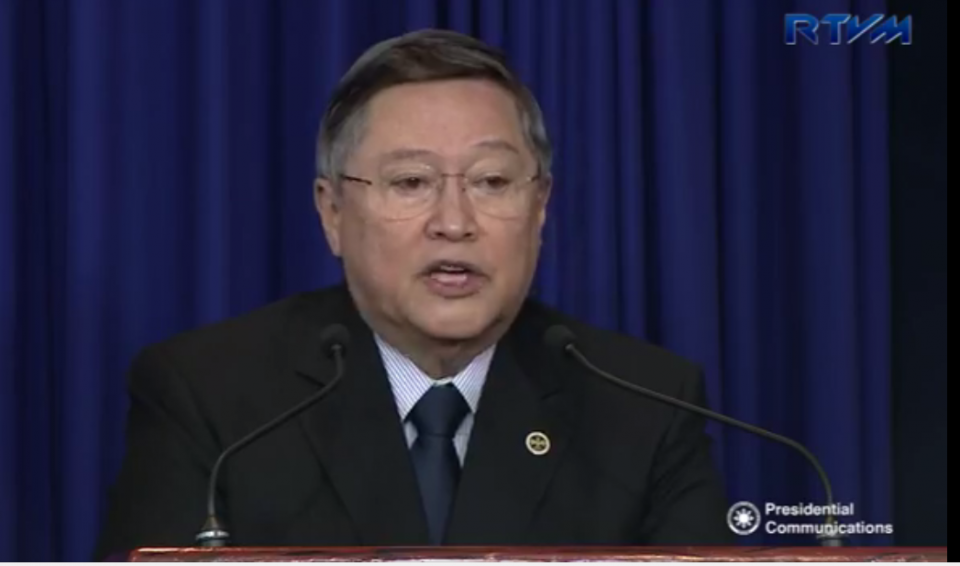
(Eagle News) – Foreign nationals working in Philippine offshore gaming operations (POGO) should pay taxes and comply with the country’s tax laws, as various government agencies met to consolidate the list of foreign workers who should pay taxes, according to the Department of Finance (DOF).
The DOF said it is now working closely with the Bureau of Internal Revenue (BIR) as well as with other government agencies, including the justice and labor departments, to ensure that these foreign nationals will follow procedures for the payment of income taxes.
The payment of income taxes is mandated under Revenue Memorandum Circular (RMC) No. 78-2018. Under this memorandum circular, all foreign and Philippine-based gaming operators, including those with offshore licenses, are now required to register with the BIR as a prerequisite in the renewal of their Philippine Amusements and Gaming Corp. (PAGCOR) licenses.
“This mandates the BIR to identify and monitor tax payments including remittances of taxes withheld on foreign nationals working for them,” the DOF said in a statement.
-Consolidation of list of foreign workers who should pay taxes-
The DOF is now working on the consolidation of the list of foreign nationals working for service providers of POGO operators.
Finance Secretary Carlos Dominguez III said that this consolidated list should also be reconciled by the various agencies and offices involved in screening, providing work permits and registering them here in the country.
These agencies include the Department of Foreign Affairs (DFA), which screens and issues visas to foreign nationals entering the country; the Department of Justice (DOJ), which oversees the Bureau of Immigration (BI) that, in turn, grants short-term special work permits (SWPs) to foreigners; the Department of Labor and Employment (DOLE), which issues alien employment permits (AEPs); PAGCOR, which has a list of its licensed POGO operators; Department of Trade and Industry (DTI), which oversees the country’s special economic zones (SEZs) where a few of these POGOs operate; and the Securities and Exchange Commission (SEC), which registers POGO agents.
“If we get all that (information), then it is possible that we can begin to collect taxes, enforcing the law on these foreign workers who are operating here. Isn’t that what we really want to do here, enforce the law?” Dominguez said during a recent meeting he requested with the respective heads of these agencies to find ways of making foreign POGO workers pay income taxes to the BIR.
BIR Deputy Commissioner Arnel Guballa, who was in the said meeting, cited BIR data which lists 54 POGO licensees, of which 10 are local firms and 44 are offshore operators. Of the local operators, only seven are registered, while only eight of the offshore licensees are registered with the BIR.
Justice Secretary Menardo Guevarra, who was also in the meeting, said that as of June last year, there were less than 95,000 foreign nationals who were issued by the immigration bureau with various forms of temporary work permits as POGO employees.
Dominguez said suggested tracing the employers of these foreign workers so that a portion of their salaries could be withheld and turned over to the government as partial payment of their income taxes.
He said that this would be a “good starting point.”
Besides ensuring that foreign nationals comply with tax laws, Dominguez also said it is imperative for the government to find out who and where all these alien workers are, given the national security implications of their large presence in the country.
Philippine Amusement and Gaming Corporation (PAGCOR) chair Domingo, however, pointed out that the figures on foreign workers provided by the immigration bureau was not accurate.
This is because foreign workers who were given six-month Special Working Permits (SWPs) may have already secured provisional working permits and remained on the list of those still with SWPs, while those with provisional working permits may have already been issued AEPs by DOLE.
“The numbers may overlap,” Domingo said.
She said that since the PAGCOR only registers POGO operators but is not tasked to regulate foreign workers’ visas, the Bureau of Immigration and the Department of Labor and Employment (DOLE) should be able to compile an accurate list of foreign POGO workers.
Domingo committed during the meeting to provide the complete list of, and information about, POGO service providers and require them to provide a list of their foreign workers and their respective salaries.
Security and Exchange Deputy Commissioner Javey Paul Francisco said the SEC can provide a list of corporations registered as POGO agents while Lopez said the DTI can forward to the BIR the list of foreign nationals working in SEZs.
Labor Secretary Silvestre Bello said he will immediately convene the interagency task force (IATF) led by the DOLE and Bureau of Immigration that monitors the number of foreign nationals working in the offshore gaming industry to consolidate and reconcile the lists to be provided by the various agencies.
Dominguez said the DOF and the members of the task force will meet after 30 days, at which that time he expects a complete and clean list of foreign nationals working in offshore gaming operations here.
Aside from Dominguez, DOJ’s Guevarra, Bello, Domingo, Guballa and Francisco, also present in the meeting were Trade Secretary Ramon Lopez, BIR Commissioner Caesar Dulay, and Deputy Solicitor General Henry Angeles.







